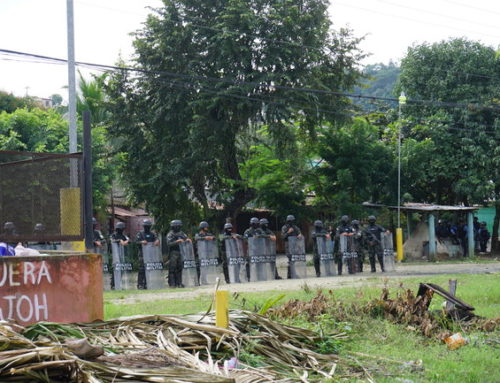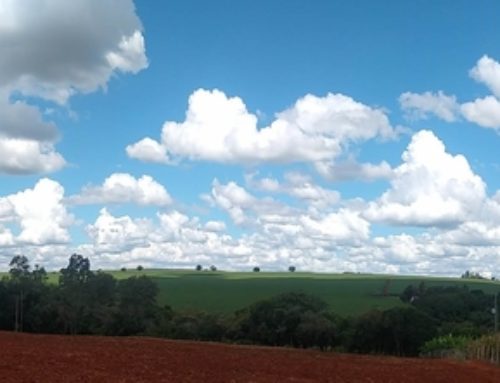Delhi. Friday, March 20, 5.36pm. The sound of a plane. It takes me back to rural Bengal, to the start of my fieldwork, when I would sit on people’s veranda and introduce myself, and they would ask me how far is home? “Nine hours, by plane.” At which they would look at me in disbelief and utter these words: “Humans are like birds” – as if this was the only way in which they could make sense of my mobility, they who struggle even to get a passport. Yes, certain humans are like birds … my sluggish, tired body prevents the mind from really considering this idea. My eyes lazily hover over the frames on the wall before me, turquoise, or was it red? I almost made it – I snuggle in this comfortable bed, in this lovely room, in this charming flat. I almost made it, out of India, back to Italy. Back home.
Can’t believe that only this morning I was having breakfast in Kolkata; my friend Hortense’s beautiful three-story house feels so far away from Delhi’s Chittaranjan Park right now. “Si j’étais jeune…,” perhaps Hortense would have considered leaving, had she been young. Or perhaps staying is simply the humanitarian’s default position. It must have been some time in the 1970s when she first came here, on the wave of Westerners discovering South Asian cities as cities of joy. In the living room, a family photograph with Mother Teresa speaks of that joy, although from the point of view of bird-like humans – those who can choose where home is. I follow her in the kitchen, trying to put together a linear account of how I came to this decision, to leave India, to leave now – thankfully, she does not ask me to make sense, she simply carries on with making breakfast, one or two pieces of bread? I follow her graceful movements. I have never seen her wearing clothes other than a sari – the realization of this serendipitous intimacy soothes the anxious me. Home-made guava jam, ginger tea with cardamom-infused milk: “Thank you, Hortense.”
Hortense certainly meant well, as do I. But can we rewrite history with today’s actions? Can kindness and a sincere heart erase color and privilege? Can our respective projects ever succeed in bringing birds and humans together? Aren’t we both inhabiting a world of contradictions – skillfully and constantly negotiated by means of reflexivity? Only for moments like this to throw such delicate negotiations into disarray! Can you blame her for wanting to stay? Everything she has ever built is here. Can you blame me for wanting to leave? Yet, the structural conditions that brought us here in the first place and that allow us to go back in times of crisis, cannot be undone.
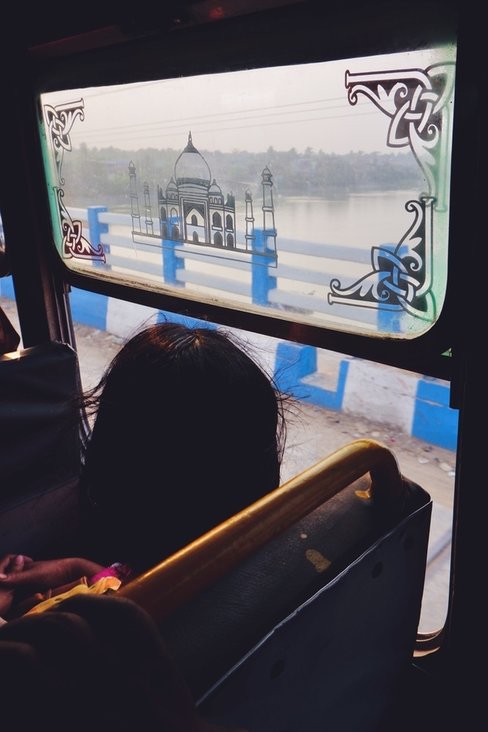
Travelling in local public transport
A WhatsApp call dissipates trailing thoughts. It’s Nodira, my old friend from Uzbekistan, she wants to know whether I managed to get to Delhi, “Yes, yes, I did my dear, what about you, how is the situation in Tashkent?” Together, we engage in the difficult exercise of isolating the moment panic first set in. “Fear is an illness” – the voice of my landlord back in the field comes to mind. Fear is an illness, and both Nodira and I can remember the day we fell ill – it was five days ago, on March 15. For Nodira, it was when the index case was identified in Uzbekistan, a person coming back home from France and travelling on the same plane as someone she later met for dinner – so it suddenly became very personal for her. And me? It was Sunday when I left the first voice message on my family WhatsApp group, suggesting that they might help me look into, just look into, how repatriation would work.
How did I come to even contemplate that? Until Sunday, Covid-19 just looked like another hashtag on social media, at least so it seemed to fieldworker me, busy enough with navigating the everyday reality of living in a Bengali village. Those six hours from Kolkata apparently granted us immunity, although not an immunity to media. As radios kept buzzing: virus, virus, virus, people started asking me about Italy and the virus, virus, virus, and this is how my heart began to change. Slowly at first. Some innocent messages prompting friends back home to tell me about their everyday. An email to the consulate asking what they would do in case one of us Italian nationals got sick. The contemplation of the prospect, so painful, of not going to Kolkata for a while, should I go back to washing my saris in the pond – as I did for the whole of last year?
And then came a wave of people telling me to leave, to leave immediately, “ASAP,” “come home Silvia,” “get da fug outta there!” How can I leave right now, is this really serious, is it going to hit us, is it going to come all the way here? Fear, determination, disbelief, irritation, commitment to the field and to my project – confusion and uncertainty packed together in compact WhatsApp messages to my supervisors. What should I do? Should I really leave? Didn’t I survive the cyclone, the lice, the heat, the skin infections, the loneliness, the news of all those deaths due to tiger attacks, is this going to be that bad? Isn’t this just another sacrifice fieldwork is asking me to make?
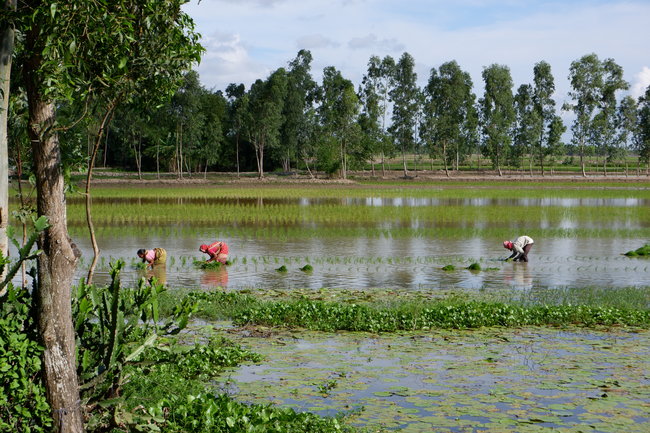
The following day, on the Monday, with a heart full of embryonic qualms, I went back to where I started. The owner of the tourist lodge where I had first stayed didn’t realize the tension I was harboring until I burst out crying, unwittingly and suddenly – damned anxiety! He switched on a fan and invited me to sit more comfortably, there, next to the window, may I have some tea? This place, it had looked so different to the novice fieldworker one year ago! We had no electricity back then, and in the evenings the intensity of the light bulbs would grow and decrease at the sound of the gen-set. But it didn’t matter, everything felt so special: the smoke of burnt biomass at sunset, the muddy shores, the red brick roads, people’s genuine curiosity, even that bat in the room at night. I was so naive, so motivated, the best intentions in the world were mine.
By evening, fear had already turned me into a fieldworker who could not even fulfil her basic duty: give up your preferences and suspend your judgements, the mantra goes. The landlord’s son kept coughing and coughing and walking past me – from the boy I played with just a few days earlier, he had turned into a dry, repetitive sound: cough, cough, cough. Fieldwork: the tireless searching for all those things lost in translation, the attempt to fill the unbridgeable gap between us – would have fieldwork been possible in these new, unexpected circumstances? Would I have been able to keep adjusting, understanding, accepting, explaining, tolerating, sighing, exploding and imploding, silently and secretly? Would I have been able to continue mending the fissure that makes us forever not at home in the field? Like Penelope and the burial shroud.
No, I wouldn’t. And thus, on Tuesday, the decision was taken, my flight was booked, my heart was broken. “We could feel your anxiety,” the landlord encouraged me, “We understood you were worried, although you would be safe here.” Is it a human universal, I ask myself, that of associating safety with home? A strange thing to admit in the 21st century, at least for Generation Airport, for people like me, always on the go, a couple of years here, a couple of years there. Birds. Perhaps I am not personally responsible for the spread of the pandemic, but isn’t my heightened mobility yet another manifestation of the Capitalocene (Moore 2016)? Yes, my Bengali friends travel too, as they seek employment in Tamil Nadu or the Andamans, but do they benefit from the same, unencumbered mobility? Yesterday in the field and then Kolkata, today in Delhi, tomorrow in Italy: no, they don’t. As people around the world are part of the same capitalist structures, but their participation happens on different terms, aren’t events like Covid-19 inevitably and intensely political, in both causes and effects (Davis 2001)? And if that’s the case, how do I position myself by leaving? I am tormented by the lack of clarity on what politics of life is at play here, Didier Fassin (2007), please help me: how does that work for anthropologists leaving the field in times of crisis?
Back in Delhi, my host for the night shows me a video of Justin Trudeau speaking about “repatriating stranded citizens,” “borders closing to foreign travelers,” “Canada’s plan to fight coronavirus” – why are our responses centered on the nation state? Yes Allison Bashford (2020), the pandemic must be managed with the means we have and not those we wished for, but I worry about the undertones of such messages. Is it because of these messages that I associate safety with home? Such suspicion gives me great discomfort.
Amidst this confusion, one clear feeling: that of being uprooted. Emptied by the loss of the new, fieldworker me, whom my newly made friends and I didn’t have the time to properly mourn. It is the me who, in the evenings, would take the narrow, dark road along the riverside to get to my friend Sushmita’s place; she would give me Takurda’s prasad and I would sit on the kitchen’s floor, watching her make dinner amidst a thin veil of cookstove smoke. The me who would stop at Lakshman’s shop to enjoy his bright mind and upbeat chit-chat. Or listen to Jamini’s rhythmic chanting of the Gita, her cat looking for human warmth on the veranda in the winter days. Fieldwork is an intense engagement of body and mind; while our main job description is to observe life and participate in it from a viewing platform, sometimes we find ourselves desperately wanting to experience it in the first person. In some people, in bits and pieces, in some words, in particular feelings, we find love and truth. Weren’t we, wasn’t I, in those precious moments, genuinely myself, genuinely loving, empathizing, enjoying? For a fleeting instant, no politics, no history, just myself.
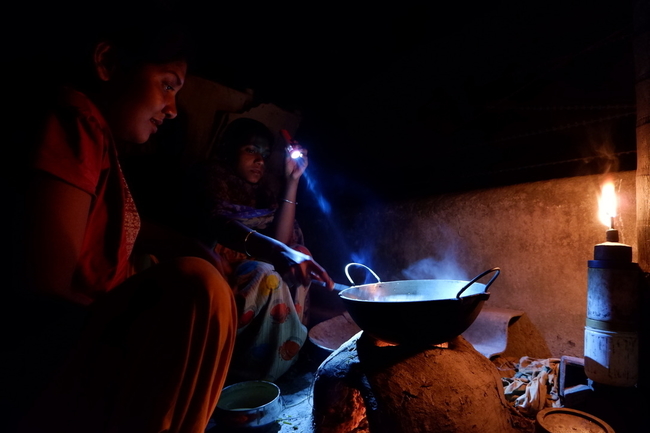
Sushmita cooking Bengali sweets
Tomorrow I will be on that flight, heading back home, just on time before the start of the travel ban – the same travel ban that will affect so many people in India, unable to return home. As the world gradually slips into lockdown mode, I realize how privileged I am, to be like a bird, flying to a country that wants me back. How privileged I am in that I am not concerned about where I will be staying, what I will be eating, who will take care of me if I get sick, how I will endure these times. Will my work change any of this? Will it challenge the privilege I have? Can we hope for a future when everybody can feel home anywhere, in that he or she can enjoy safety, care, respect – regardless of passport? The calming darkness in the room is lit by the memory of those fireflies, back in the field, hundreds of them, resting on the ceiling of my room, like tiny little stars. They, unlike me, they don’t judge, they don’t blame. Wordlessly, they simply wave goodbye.
References:
Bashford, Alison. 2020. “Beyond Quarantine Critique.” In “Dispatches from the Pandemic: Covid-19 Forum,” Somastophere: http://somatosphere.net/forumpost/beyond-quarantine-critique/ (Accessed April 7,2020).
Davis, Mike. 2000. Late Victorian Holocausts: El Niño Famines and the Making of the Third World. London; New York: Verso.
Fassin, Didier. 2007. “Humanitarianism as a Politics of Life.” Public Culture 19(3): 499–520.
Moore, Jason W. 2016. Anthropocene or Capitalocene? Nature, History, and the Crisis of Capitalism. Oakland, CA: PM Press.
Cite as: Pergetti, Silvia. 2020. “’Humans are like birds’: On Leaving the Field in Times of Crisis.” In “Pandemic Diaries” Gabriela Manley, Bryan M Dougan, and Carole McGranahan, eds., American Ethnologist website, APRIL 23 2020 [https://americanethnologist.org/features/collections/pandemic-diaries/india-humans-are-like-birds-on-leaving-the-field-in-times-of-crisis]
Silvia Pergetti is a PhD Candidate in Social Anthropology at the University of Edinburgh
